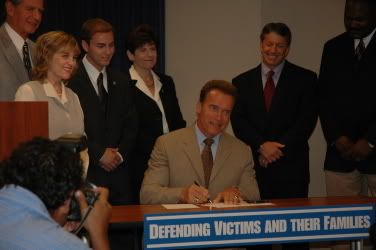My testimony tomorrow before the California Senate Education Committee is very high stakes. If all goes well, AB 2165* will pass one of its last remaining legislative milestones on the way to the governor’s desk.
Your continued good thoughts mean the world to me as I carry forward a commitment to my Rosa Resolution. No matter how things turn out, I want to know with a certainty that I could do no more, that I’ve given it my best.
I often re-read Maya Angelou’s poem, And Still I Rise for inspiration and encouragement on this journey. If I could, here are the parts I’d read aloud to the criminals whose actions led me to initiate and then sponsor this bill:
Did you want to see me broken?
Bowed head and lowered eyes?
Shoulders falling down like teardrops,
Weakened by my soulful cries.[…]
You may shoot me with your words,
You may cut me with your eyes,
You may kill me with your hatefulness,
But still, like air, I’ll rise. […]
Leaving behind nights of terror and fear
I rise
Into a daybreak that’s wondrously clear
I rise.
Thank you, my LJ friends, for helping me rise to this challenge. I’m so very grateful.
UPDATE: If you’re interested, I’ve included a copy of the testimony I’ll give to the Committee tomorrow (under the cut). I only have five minutes to present, so my comments have to be short.
Mr. Scott and members of this Committee, I am grateful for the opportunity to speak out today in favor of Assembly Bill 2165.
This proposed legislation has its origins in a traumatic personal experience. In late 2004, my son was a victim of a vicious and unprovoked assault by several members of Grossmont Community College’s football team. He suffered significant injuries, for which he required major surgery and ongoing medical attention. Thanks to San Diego investigators and the District Attorney's office, three of the assailants were identified, prosecuted, and sent to jail on felony convictions. And thankfully, my son has healed. However, our experiences in the aftermath of the assault led me to suggest, and then sponsor this bill.
The actual assault occurred off campus and, speaking in purely legal terms, the coach, community college, and statewide athletic associations are not responsible for the actions of student athletes beyond their participation in school-sanctioned events.
But you might reasonably assume that no school would want the black eye that comes of playing these violent, convicted felons on their teams. Surely, no coaches would want to put themselves in this situation, given that they’d potentially endanger other students, staff, and community members. And given the moral codes of conduct and eligibility requirements to which college coaches and athletes are bound, it logically follows that dangerous criminals who haven’t yet served their sentences would be scrubbed from team rosters.
We know now that none of these assumptions are true.
Instead, we experienced a complete breakdown of individual and institutional accountability in these circumstances – clearly illustrating the need for this bill’s legislative remedy.
Grossmont College coaches deflected responsibility.
Grossmont’s head football coach and others on his staff knew about the crime and the investigation involving their student athletes. The unspeakably violent assault was caught on video, which many of your staff members saw. And yet, after seeing video evidence of his team members’ criminal behavior, the coach still kept them on his team. In fact, two of the three felons were arrested in on campus – in front of the whole team. Nevertheless, the coach allowed them to continue playing football for the college, even after they entered guilty pleas to felony assault (in May 2005) and as convicted felons, were awaiting sentencing.
When asked by a newspaper reporter about his decision to allow convicted felons on his football team, the coach at first denied playing at least one of them, then said, “Maybe if it was my star quarterback, I would have paid more attention.”[1] And in an interview with a broadcast journalist, he also said, “I guess I figured if they weren’t in jail, they were all right [to play]."[2]
When my son and I raised the issue with Grossmont-Cuyamaca College District officials, they said the issue “raised huge concerns,” but later asserted that their “hands [were] tied.”
District spokeswoman Susan Herney conceded to the media that there is no specific local college rule requiring coaches to notify college administrators that they have players facing criminal charges – only “an expectation and a professional obligation” that they be kept informed.[3]
However, and despite their immediate expressions of concern and promises to investigate, college officials later told us that their “hands [were] tied” by the absence of definitive guidelines and policies they could follow when determining whether student athletes are eligible to continue playing sports for the college after being convicted of a violent felony.
Grossmont College has submitted to your Committee a letter of endorsement for this bill, acknowledging it as an effective and appropriate legislative remedy.
Moving up to the next level, I contacted The California Commission on Athletics (COA). The message I received from COA officials was that, while the Commission has the authority to write standardized eligibility regulations, they chose not to do so.
To my surprise and chagrin, COA Board Chair Eva Conrad told me that “formal action [by the COA was] unlikely” because, in her words,
“…The existence of a code of conduct or decorum does not guarantee that individuals would adhere to these.”[4]
In essence, Ms. Conrad acknowledged that, while the COA is vested by the State of California with the authority to create standards and codes related to student athlete eligibility, they were abdicating that responsibility because those new regulations might not be uniformly or consistently applied.
This ambiguity about eligibility and enforcement policies has allowed a gaping chasm of accountability. In fact, my research turned up just two of 109 California Community Colleges who demonstrated a willingness to write and implement policies that expressly exclude felons from playing on their teams.
The NCAA takes a bye on writing restrictive eligibility regulations, as well.
An article in the LA Times reinforced what I had already been told by an NCAA spokesman — that “while it’s known for its hefty manual, containing myriad rules that cover issues ranging from uniforms to recruiting — [the NCAA] has no policy for criminal behavior.” Therefore, an athlete can, theoretically, face immediate suspension for improperly accepting a cheeseburger from a booster, yet continue playing on the team after being convicted of any one of the violent felonies listed in this bill.
From my encounters, experiences, and research, I have come to believe this an issue for the Legislature to take on, because it involves decisions and circumstances that California coaches and colleges – as well as the statewide Commission on Athletics and the NCAA – say they are powerless or unwilling to address.
Your ‘yes’ vote on this bill will grant each athlete, institution, and association specific legislation-supported power and encouragement to make the right choices.
This bill’s passage will also send a message to Californians that we do not support with our tax dollars any college athletic teams who harbor violent criminals. And finally, it will assure those of us who enjointercollegiate athletics that, as we cheer on our favorite athletes and athletic teams, we won’t be rooting for violent criminals as well.
[3] “Coach Mired in Controversy,” November 17, 2005, San Diego Union Tribune.
[4] Email exchange between Melodye Shore and Eva Conrad, 11/03/05 and 11/20/05.
*In essence, AB 2165 prohibits student athletes who are convicted of violent felonies or sexual crimes from participating in intercollegiate sports at California public colleges and universities until they’ve successfully completed the terms of their court-assigned sentences.






